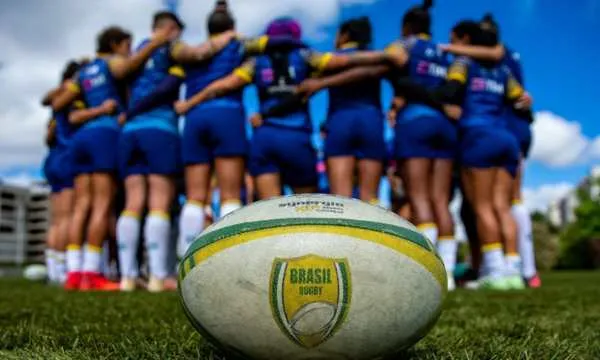Dive into the thrilling history of the Rugby World Cup and discover the stories that shaped the sport!
Anúncios
This isn’t just a tournament, it’s a global celebration of strength, strategy, and sportsmanship that captivates millions every four years.
We are about to embark on a journey through time, exploring everything from the tournament’s intricate rules to the legendary teams who have lifted the coveted Webb Ellis Cup.
You’ll get to know the players who shattered records and the unforgettable matches that are still talked about with reverence.
Moreover, we will unravel the global qualification process that makes every spot in the tournament a hard earned victory.
Understanding the Tournament Format and Rules
Before we dive into the epic history and dazzling records, it’s helpful to get a handle on how the tournament actually works.
It all begins with the pool stage, a phase where every match counts and sets the tone for the rest of the competition.
The tournament kicks off with 20 national teams divided into four pools of five. Within each pool, teams play in a round robin format, meaning each team plays every other team in its group once.
The points system is crucial here: a win earns four points, a draw earns two, and a loss earns zero.
However, there are also bonus points up for grabs, which can make all the difference.
A team can earn one bonus point for scoring four or more tries in a match and another for losing by seven points or fewer.
These bonus points often lead to dramatic finishes in the pool standings.
Once the pool stage concludes, the top two teams from each of the four pools advance to the knockout rounds.
This is where the pressure truly mounts, as it becomes a single elimination tournament.
It starts with the quarter-finals, followed by the semi-finals, and culminates in the grand final to crown the world champion.
There is also a “Bronze Final” match between the two semi-final losers to determine the third-place winner.
This unforgiving format means there are no second chances one bad day can end a team’s dream.
A Complete History of Rugby World Cup Winners
Now that we know the path to glory, let’s look back at the titans who have walked it. The history of the Rugby World Cup is decorated with dominant dynasties and inspiring underdog stories.
At the heart of it all is the ultimate prize: the Webb Ellis Cup, named after the supposed inventor of the game. Winning this trophy cements a team’s place in rugby immortality.
Since the inaugural tournament in 1987, the competition has been dominated by a select few powerhouses from the Southern Hemisphere.
New Zealand and South Africa are the most successful teams in the tournament’s history, each having won the title multiple times.
Their fierce rivalry and consistent excellence have defined much of the World Cup’s narrative. Australia is another giant of the game, with two victories to their name, known for their innovative and skillful style of play.
These three nations have created a legacy that other countries aspire to match.
However, the Northern Hemisphere has also had its moment of glory. England’s victory in 2003 remains a landmark achievement, as they are the only team from the north to have won the men’s tournament.
Their triumph broke the Southern Hemisphere’s stranglehold and added a new layer of global competitiveness to the event.
Incredible Scoring and Participation Records
Behind every champion team are players who deliver extraordinary performances.
The Rugby World Cup has been a stage for individual brilliance, where athletes push their limits and set records that stand for years.
These records cover everything from most points scored to most appearances in the tournament, highlighting the dedication and longevity of the sport’s greatest stars.
When it comes to participation, few can match the incredible career of New Zealand’s Sam Whitelock.
In the 2023 tournament, he set a new benchmark for the most appearances in Rugby World Cup matches, a testament to his enduring skill and fitness at the highest level.
On the scoring front, England’s Jonny Wilkinson is legendary, holding the record for the most overall points in the tournament’s history.
Meanwhile, the record for most tries is jointly held by two icons of the game, New Zealand’s Jonah Lomu and South Africa’s Bryan Habana, who were both unstoppable forces on the wing.
The spirit of record breaking is also thriving in the women’s game. For instance, New Zealand’s Portia Woodman-Wickliffe has set new try scoring records in the Women’s Rugby World Cup, showcasing the incredible talent in the sport.

Matches That Made History in the RWC
The Rugby World Cup has delivered countless moments that left fans breathless and turned players into legends overnight.
These are the matches talked about for decades, defined by a single moment of brilliance, a dramatic comeback, or a result that shocked the world.
Perhaps the most iconic moment in World Cup history came in the 2003 final. With the score tied in the final minute of extra time, England’s fly-half Jonny Wilkinson kicked a drop goal to secure a victory over Australia.
That single kick won England its first and only men’s title and is remembered as one of the most clutch plays in sports.
Another powerful moment occurred in 1995, when South Africa, hosted the tournament.
Nelson Mandela, wearing a Springbok jersey, presenting the Webb Ellis Cup to captain Francois Pienaar is an image that transcended sport, symbolizing a new era for the nation.
You also cannot talk about historic matches without mentioning the day Jonah Lomu redefined the winger position in the 1995 semi-final.
The New Zealand All Black scored four tries against England, including one where he famously ran over several defenders.
His performance was a display of raw power and speed that had never been seen before and left a permanent mark on the sport.
Understanding the Global Qualification Process
While we often focus on the 20 teams that make it to the final tournament, the Rugby World Cup is a truly global event with a qualification process that involves nations from every corner of the world.
This journey to qualify is a tournament in itself, filled with its own drama and excitement.
The process is designed to be both fair and competitive. The top teams from the previous World Cup typically receive automatic qualification for the next tournament.
For the 2023 event, the top 12 teams from the 2019 World Cup secured their spots automatically. This system rewards consistent performance and ensures that the sport’s powerhouses are always present.
The remaining eight spots are contested through a series of regional tournaments held across Africa, the Americas, Asia, and Europe.
The winners of these regional competitions qualify directly, while some runners up get a final chance through a “Final Qualification Tournament”.
This multi layered process gives dozens of nations a shot at their dream and promotes the growth of rugby worldwide.
Conclusion
From the strategic complexities of its format to the rich tapestry of its history, the Rugby World Cup is far more than just a competition.
It is a showcase of athletic greatness, a source of national pride, and a collection of unforgettable human stories.
We’ve journeyed through the list of champions, celebrated the record breaking individuals, and relived the moments that gave us goosebumps.
The tournament’s ability to unite fans and create lasting memories is what makes it a truly special event in the sporting calendar.
FAQs
1. How often is the Rugby World Cup held?
The Rugby World Cup is held every four years and this cycle gives nations ample time to develop their squads and build a competitive team for the next tournament.
2. Who has won the most Rugby World Cup titles?
South Africa with 4 titles and New Zealand with 3 titles are the most successful teams in the history of the Men’s Rugby World Cup.
3. What is the Webb Ellis Cup?
The Webb Ellis Cup is the official trophy awarded to the winner of the men’s Rugby World Cup.
4. What is considered the greatest moment in RWC history?
While this is subjective and fans have many favorites, Jonny Wilkinson’s last minute drop goal for England in the 2003 final is widely regarded as one of the most dramatic and iconic moments.


